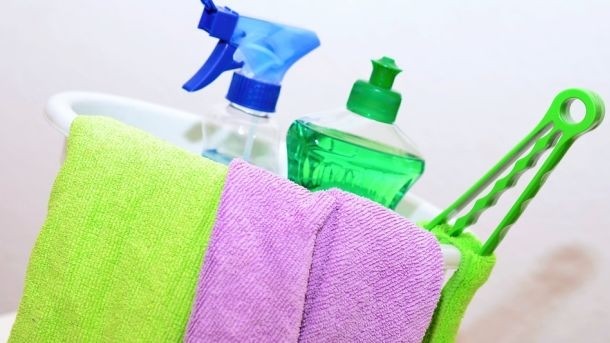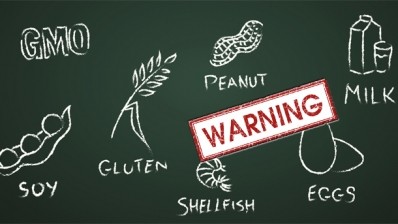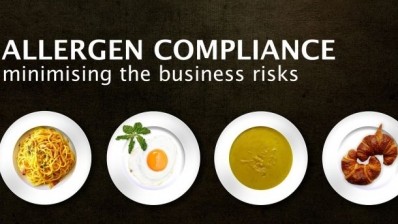Most common hospitality food safety mistakes

The Royal Society for Public Health (RSPH) recently released the top food hygiene errors by hospitality staff in a new report.
Aside from the most prevalent hygiene mistake, failing to regularly and thoroughly wash hands, chefs were relying on a "if it looks all right and smells all right, you can eat it” attitude to whether or not food was suitable for consumption, the experts said.
Another dangerous mistake frequently encountered by RSPH examiners was chefs believing dangerous foodborne pathogens could be detectable through sight, smell or taste.
Many of the most harmful and widespread pathogens can cause severe illness and even death when present, even in very low numbers, but don't impact the taste, appearance, small or texture of the food.
The examiners also found areas of misunderstanding and malpractice among foodservice catering businesses, including buffets, which were described as a hotbed for bacteria.
The RSPH stated that bacteria thrives in temperatures between 5°C and 63°C, which it has labelled ‘the danger zone’. Failure to swiftly cool cooked food below this limit is a high-risk factor for food poisoning.
Buffet venues were more likely to put customers' health at risk by not cooling cooked food properly, according to the examiners.
An inadequate understanding of infectious diseases and how easily they can be spread by unwell staff members entering the kitchen was also an issue, the RSPH claimed.
Inadequate understanding
Though the onus is on food handlers to report a recent illness, there was a danger that pressures not to lose out on work, particularly among zero-hours contract workers, are leading many to overlook this, claimed the RSPH.
It also said there was an inadequate understanding of the controls necessary to prevent allergen contamination.
Though food poisoning impacts the public’s health in far greater numbers than allergens, there are around 10 deaths a year in the UK caused by allergenic ingredients, and a great deal more near-death incidents.
Food safety experts said that in many food environments there was insufficient understanding of the controls needed to prevent allergen contamination, and highlighted the need for watertight communication channels between front-of-house, waiting, and kitchen staff when dealing with customer allergen information.
Last month (June), pubco Greene King had to fork out £24,000 after an 11-year-old boy suffered an anaphylactic shock from a baked Alaska dessert at one of its Bedfordshire pubs.
When the boy visited the Globe Inn, Leighton Buzzard with his family in April last year, his mother asked for a dessert containing no egg. A baked Alaska was recommended by staff because the pub’s allergens data sheets showed the dish did not contain egg, despite the fact it does.
An investigation by Central Bedfordshire Council food safety officers found there had been discrepancies between Greene King and its supplier in the list of ingredients in relation to the allergens declaration for the dessert.
The 3,000-strong pubco apologised to the boy for this “isolated” incident and a spokesperson said: “We have invested heavily to automate what is a complex process and are confident that this has addressed the issues which gave rise to this unfortunate incident.”
Another mistake for operators to watch out for is the reuse of unclean cloths for cleaning surfaces in pub kitchens.
Prime risk
The RSPH said in many catering establishments, staff will leave cleaning cloths to dry overnight then reuse them day after day, a prime risk for spreading pathogens around a food-handling setting.
Instead, the body suggested, staff need to have adequate procedures for ensuring cleaning products themselves are kept clean.
Lastly, when monitoring food temperature, catering staff may just check the temperature of the fridge, but this often leads to a mistake as it is the food itself which needs to be probed.
RSPH chief executive Shirley Cramer highlighted that while the nation has high food hygiene standards, hearing about these mistakes was a cause for concern.
She said: “The UK continues to have some of the highest standards when it comes to handling and preparing food safety.
“While many catering professionals have an excellent understanding of food safety regulations and best practice, it is worrying to hear some of the most common and hazardous mistakes and misconceptions which persist.”
RSPH director of qualifications Dr Richard Burton said: “Ideally staff in the hospitality industry would have received food safety training and a relevant qualification before they started working in the industry.
“For those who haven’t, our new e-learning package will be an effective and convenient method of food safety training, which will enable them to take a qualification with confidence.”







